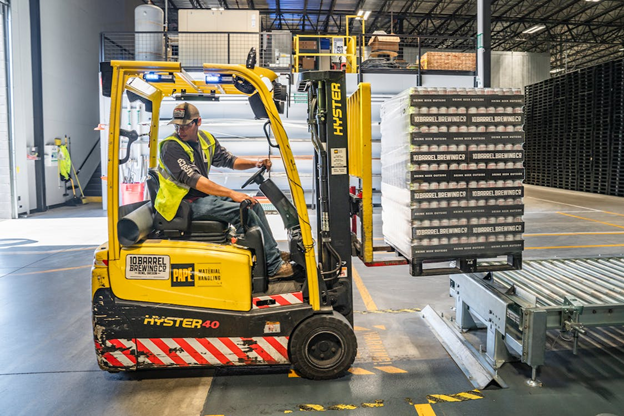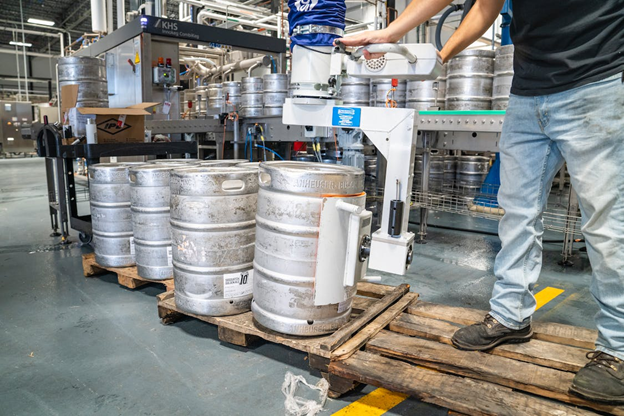Having a fully functional and efficient production line is essential for any business. However, technical issues can occur that can disrupt or halt production. These issues can range from minor to major and have the potential to cause significant delays in product delivery. Knowing how to identify and solve common technical issues on production lines is an important part of running a successful manufacturing operation. In this article, we will discuss six of the most common technical problems faced by manufacturers today and provide practical advice on how to address them quickly and effectively.

1. Poor Machine Performance:
Poor performance of machinery on the production line can be caused by a range of factors, including problems with the machine’s hardware or software. If your machines are not performing as expected, it is important to diagnose and troubleshoot the problem quickly so that you can reduce downtime and keep your production line running efficiently. In addition, a preventive maintenance program should be implemented to monitor the performance of your machines and identify any potential issues before they become major problems. So, make sure you look for different options to find the best preventive maintenance program for your business. Also, it is always important to have an experienced technician on hand who can diagnose and repair your machines quickly.
2. Not investing in reliable Plastic Injection, Thermoforming, and Profile Extrusion Needs:
Plastic injection, thermoforming, and profile extrusion are all essential processes for the production of quality products. Investing in reliable equipment is key to ensuring that these processes are carried out correctly and efficiently. Poorly maintained or outdated machinery can lead to substandard results and cause costly delays on the production line. To avoid this, it is important to keep up with all the trends and explore your options to find reliable professionals who can help you with your production and also choose the best machines available for your specific needs. That way, you will be able to produce high-quality products with maximum efficiency.
3. Defective Materials:
Defective materials can cause delays in production and lead to the production of faulty products. To address this issue, it is important to have a good quality control system in place that inspects raw materials or components, as well as finished products. Automated testing systems and intelligent sensors can detect defects early on in the process and help you identify problems with materials quickly so they can be rectified before they affect your production line. For instance, if your production line is using sensors to detect defective components, then you can set up alerts so that they are notified immediately when there is a problem.
4. Equipment Breakdowns:
From time to time, breakdowns on the production line will occur due to wear-and-tear or even operator error. To avoid costly delays, it’s important to have a robust maintenance program in place that can detect potential issues early and take preventative steps. Scheduled maintenance should be carried out regularly to check for worn or damaged components, so they can be replaced quickly before any problems arise. Also, make sure you maintain a spare parts inventory so that if an unexpected breakdown does occur, you can get your production line up and running again quickly.
5. Human Error:
Human error can be a major source of disruption on the production line, as mistakes or oversights could lead to costly delays. To minimize the risk of human errors, it is important to make sure your staff is properly trained and informed about all aspects of the production process. Automated systems can also help reduce the potential for human errors, as they can monitor production processes and alert operators to any issues quickly. Also, make sure your staff is aware of all safety protocols and that they are following them correctly.
6. Overheating of Motors:
Overheating motors can cause production lines to malfunction, leading to significant delays in product delivery and possibly even costly downtime. To prevent overheating, make sure that you regularly inspect your motors and take appropriate steps to keep them running efficiently by cleaning away dust or debris buildup, lubricating moving parts regularly, and ensuring that the motors have adequate ventilation. Also, ensure that your staff is aware of any potential risks associated with motors and follow safety protocols when handling them.

It’s essential for businesses to be aware of the common technical issues that can occur on production lines and take steps to address them quickly. Investing in preventive maintenance programs, implementing automated testing systems, having a good quality control system in place, and providing regular training for your staff are all effective ways to make sure that any potential problems are identified early before they cause delays or disruption. Following these tips will help ensure that your business runs smoothly with minimal downtime. With the right processes in place, you can keep your production line running efficiently while also reducing costs and ensuring timely product delivery.
